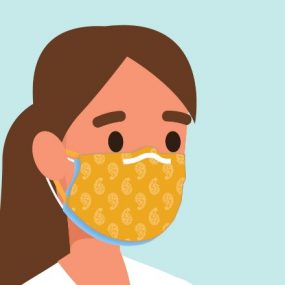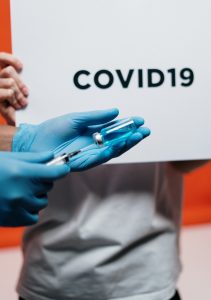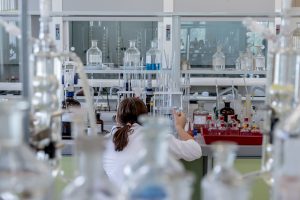COVID Vaccine Contains Dead Babies?! – 8 Myths Explored and Debunked

1. The COVID-19 vaccine will alter my DNA.

This misconception came about largely due to some of the mechanism of actions of certain vaccines, most notably the vaccines by Pfizer and Moderna which uses mRNA to carry out its protection.
Norbert Pardi, an mRNA vaccine specialist at the University of Pennsylvania explains how mRNA vaccines work. “mRNA vaccines work by providing the genetic code for our cells to produce viral proteins. Once these proteins, which don’t cause disease, are produced, the body launches an immune response against the virus, enabling the person to develop immunity.”
To put it in simpler terms, these vaccines contain genetic information which allows our own body to produce the targeted virus spike protein, which in turn triggers our body to release substances to fight the aforementioned virus.
The myth arose from the concern that these mRNA and viruses might be able to alter our DNA and change our genetic structures. However, the Centers for Disease Control and Prevention (CDC) has stressed that the mRNA does not even enter the nucleus, which is where our DNA is stored.
Also, the mRNA which is initially used will eventually be broken down by the cell. So, no. Your DNA will not be altered in any way.
Verdict: BUSTED
2. The COVID-19 vaccines were developed using fetal tissue.

Now, before you go off in your wild imagination ride where baby foetuses get meticulously ground up in mortars, do read on.
This is a case of ‘true, but not true.’ An opinion piece by Dr. Melissa Moschella, a preeminent voice on natural law and biomedical ethics sums it up pretty well.
Many COVID vaccines involve fetal cell lines in its developmental or testing phases. Vaccines by AstraZeneca/Oxford University, Inovio pharmaceuticals and Janssen used fetal cell lines, while Pfizer and Moderna used them in their confirmatory lab testings.
So, were fetuses harmed in the process?
No. The main cell line in question is named HEK 293, which is thought to be derived from the kidney tissue of a fetus aborted in 1972.
“Such cell lines are “immortal,” meaning that, once developed, they continue to divide and reproduce themselves indefinitely. This means that the use of such lines does not necessarily create additional demand for new fetal tissue,” explains Dr Melissa.
“HEK 293 has become a staple for biological research; its use is so ubiquitous—and so many other basic research materials like recombinant proteins and molecular reagents have been produced from it—that conducting research without relying on it in some form is practically impossible.”
The take away from this is that the actual truth is far from the ongoing false perception that babies are being aborted in order to develop these vaccines. Recently, even the Vatican has stated that vaccines involving these fetal cell lines are permitted if no alternatives are available.
Verdict: TRUE (but not what you may think)
3. The COVID-19 vaccine will track you and your every move.

While this might sound ridiculous and far-fetched to some, it certainly appeals to quite a large number of people.
The rumour mill started spinning when an article surfaced about Bill Gates mentioning the possibility of having a digital certificate involved in a vaccine which could be used to track who has recovered, tested or received the vaccine. However, this has been denied by Bill himself.
Another lint which may have set this bush on fire is the fact that Jay Walker, executive chairman of pre-filled syringe maker Apiject claimed that his company has developed a technology which can track vaccines. These ‘trackers’ are, in fact, RFID chips attached to the syringe labels of these vaccines and not actually part of the injectable substance. He explained that this acts as a barcode which allows the government to ensure that the vaccines provided are not counterfeit or expired. He stressed that these do not carry any personal information.
So, no. The government or vaccine manufacturers will not be able to know if or when you decide to snap up a Big Mac at your local Mcdonald’s.
Verdict: BUSTED
4. The COVID-19 vaccine is unsafe as the trial to production period is accelerated
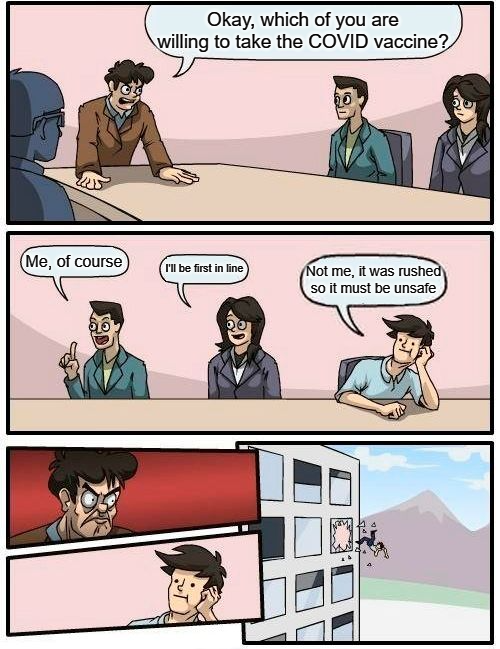
It’s ten minutes to your English lesson and you have just found out about an essay homework that completely slipped your mind. You picked up your pen and began writing furiously.
The teacher walked in and collected the essays. You stared at your chafed palms and hoped that your last-minute work would at least scrape by with a pass. Surely, a rushed job can not be a good job, right?
Well, that might be true for your essay, but when it comes to vaccines, it’s quite different.
It typically takes about 10 years to develop a completely new vaccine, but the COVID-19 vaccines were designed and implemented within a year. How was that possible? Was public safety compromised in the process of rushing a vaccine?
Funding
Stephen Evans, professor of pharmacoepidemiology at the London School of Hygiene & Tropical Medicine explained that a key factor in this miraculous speed is due to the amount of funding available to these companies. Public and private cash has been pumped into the manufacturing and testing of these vaccines. This means that companies are willing to take more risks without having to do things a step at a time.
Clinical trials
Clinical trials are usually carried out meticulously in a sequence and order. However, the COVID-19 trials were overlapped, making the process much faster. It also takes months to recruit subjects for clinical trials, but in this case it kind of happened overnight.
Approval
Dr Penny Ward, visiting professor in pharmaceutical medicine at King’s College London and chair of the education and standards committee of the Faculty of Pharmaceutical Medicine said that for a typical medication to be approved, it usually takes 6 to 9 months. However, the COVID vaccine underwent something known as a “rolling review”.
“Rolling review is a very new thing to be done,” said Evans. Companies usually wait until all data is available and ready before submitting an application for approval because these applications are expensive and risky. But the Pfizer/BioNTech vaccine was given the greenlight by the MHRA to be approved in batches, until enough data were available to ensure that there was minimal variability between each batch.
So there you have it, fast ≠ unsafe.
Verdict: BUSTED
5. The COVID-19 vaccine might cause infertility
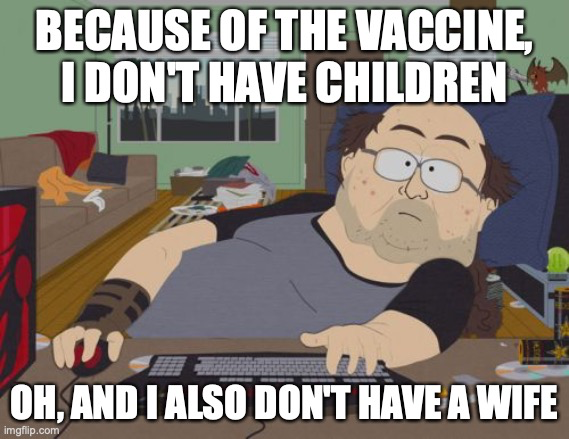
This bold and factless claim budded from an article written in a blog called Health and Money News. The author claimed that the vaccine trains the female body to attack a protein crucial to fertility.
Jerica Pitts, a spokesperson for Pfizer stated that the vaccine does not instruct the body, in any way possible, to manufacture placental proteins. In the blog, there was a comparison done between the coronavirus spike and a type of placental protein. It went on to affirm that the similarities are so high that the body could be tricked into attacking the latter.
Stephanie Langel, an immunologist and expert in maternal and neonatal immunity at Duke University, refuted that claim, stating the 2 proteins in question only share a very minor strand of genetic material. “Mixing them up would be akin to mistaking a rhinoceros for a jaguar because they are wearing the same collar.”
Dr Langel said that Pfizer will continue to monitor its vaccines’ effects on those who are pregnant, but baseless claims such as the aforementioned myth could prove to be damaging to the efforts poured out so far in developing these vaccines.
Verdict: BUSTED
6. I can finally throw my masks away after getting the shot

Hold your horses, cowboy. Upon getting your first vaccine, you are not immediately safe from the virus. Most vaccines such as the one by Pfizer, require a second dose administered 3-4 weeks after the initial shot in order to provide sufficient protection.
Many people think that once they get the vaccine, they are 100% protected from COVID-19. “I think people’s perception is you get the vaccine and you’re safe and finally we can stop all this masking and social distancing and stuff, but that’s not actually reality,” says Debra Goff, an infectious-disease pharmacist at the Ohio State University Wexner Medical Center. “But that’s not the case”
It will take time for experts to observe how well protected are the people around those who are vaccinated. Herd immunity takes time to develop. “A vaccine is the first step to helping us return to pre-COVID normality, not the end-all”
And since these vaccines are relatively new, there is no guarantee that you won’t contract the disease once you’ve gotten the vaccine. So, no, it’s not a good idea to celebrate humanity’s victory by group hugging and chest-bumping.
Verdict: BUSTED
7. The side effects of the vaccine are REALLY bad
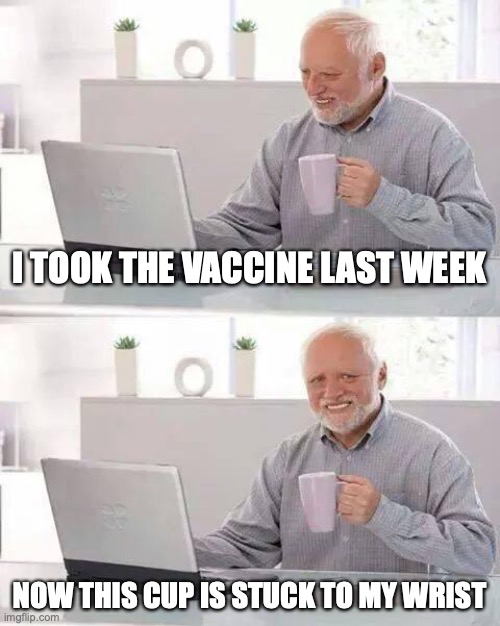
As pharmacists, side effects from treatments and medications are ubiquitous in our line of work. However, it is our duty to educate the public. Side effects after vaccination are normal, but without proper guidance and information, they might deter some parts of the public from receiving a shot.
As far as we know, those who have received the COVID-19 vaccine experienced mild to moderate reactogenicity symptoms (side effects that occur within 7 days of receiving a vaccine). These include the usual fever, chills, headache and fatigue which are more profound after the second dose of the shot.
2 NHS staff were reported to have experienced severe anaphylactic reactions after the vaccine, but both were carrying adrenaline autoinjectors, suggesting that they suffered allergic reactions in the past. The CDC recommends that those who have severe allergic reactions towards the ingredients in a particular vaccine should not get that specific vaccine. If you experience a severe allergic reaction after your first shot, you should not get the second dose.
Verdict: partly TRUE (But ONLY if you are severely allergic to it, like all other substances)
8. 6 people died during the Pfizer vaccine trial
Reports on the deaths of 6 people out of 44,000 during Pfizer’s late stage vaccine trial were shared and circulated via social media. However, these are partly false as out of the 6, only 2 were given the vaccine. The other 4 were administered placebo containing normal saline.
The U.S Food and Drug Administration (FDA) released this report stating that one participant died from cardiac arrest, while the other from arteriosclerosis. “None of these deaths were assessed by the investigator as related to study intervention” FDA reported. “All deaths represent events that occur in the general population of the age groups where they occurred, at a similar rate.”
Verdict: TRUE (but not what you may think)
So there you have it. Not all news is what it appears to be at first glance. It is extremely important to probe further and investigate based on facts and no hearsay.
Have a burning question regarding the virus or the vaccine? Reach out to your nearest doctor or pharmacist and have your curiosity quenched.
As always, stay safe and stay home.
The opinions expressed in the article are the writer’s own and do not reflect the view of MPS YPC. Links and related information are obtained from MPS’s Facebook page.




